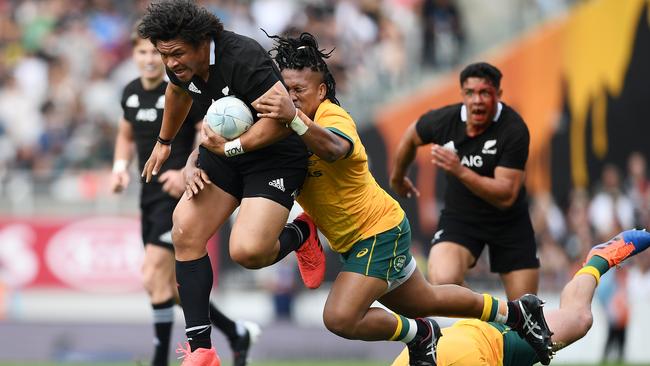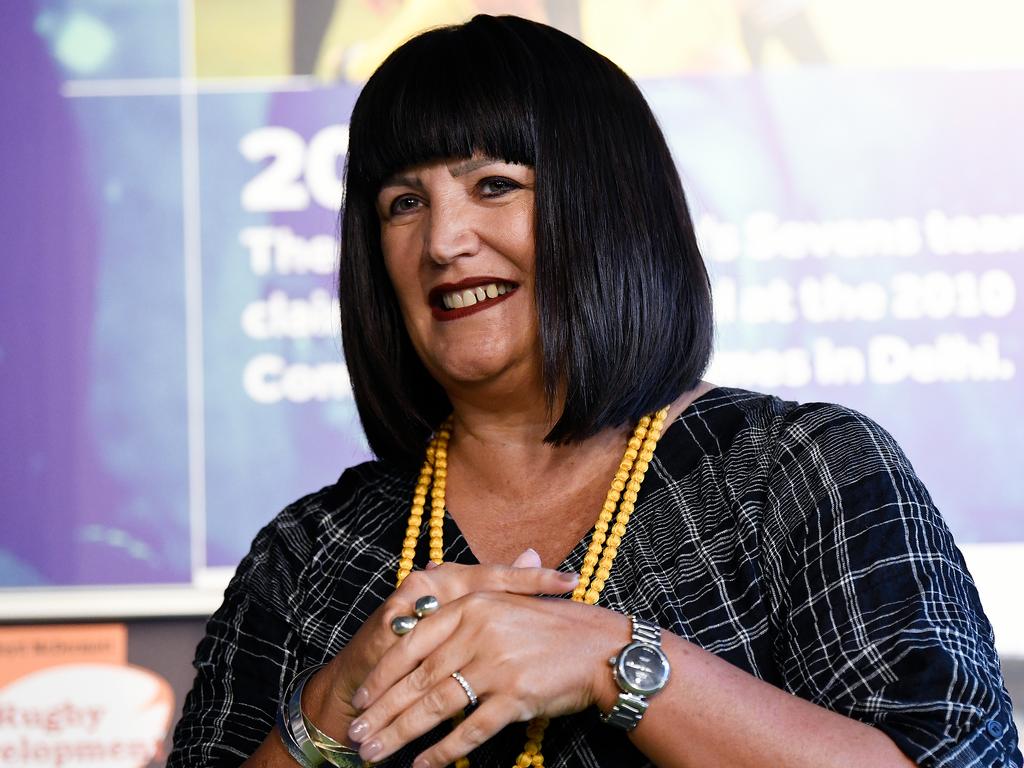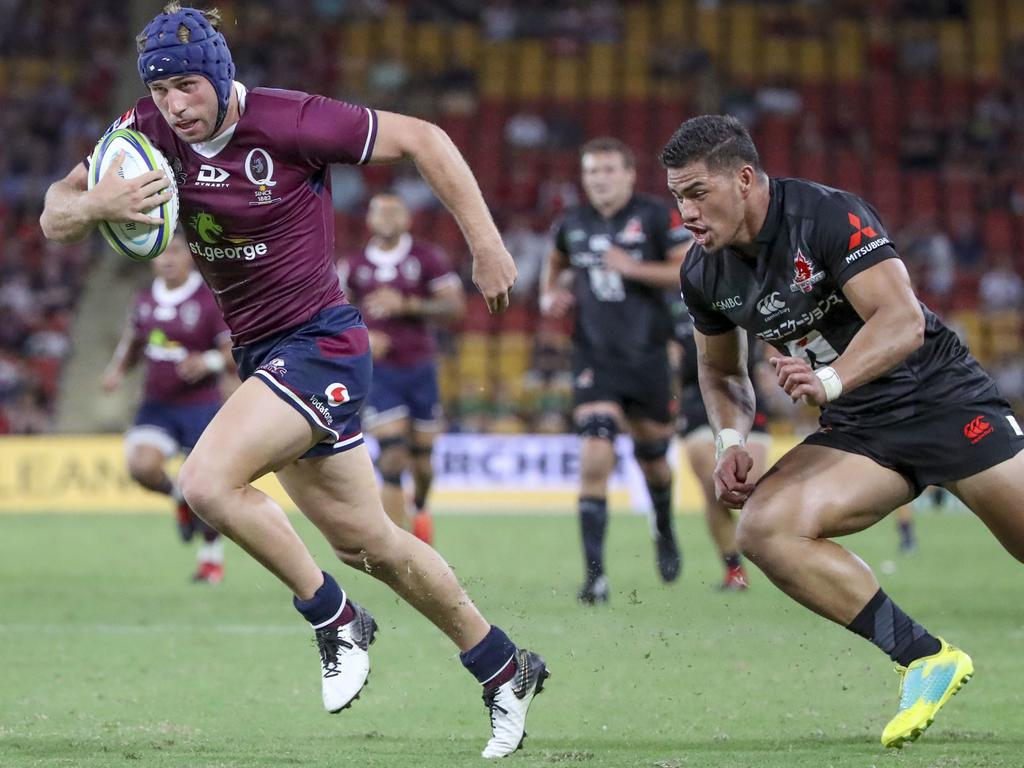Picking winners is half the battle
The simple strategies the Wallabies must employ to overcome the calamity of Eden Park.

Abraham Lincoln, the 16th president of the United States, in 1864, uttered the somewhat immortal phrase: “Don’t swap horses in the middle of the stream.”
It’s a message the new Wallaby coach needs to consider. Make no mistake, the Wallabies have the talent to win the Bledisloe Cup in 2020; but in order to win the next two Test matches, the coach needs to stop tinkering with team selections.
You can’t say to the rugby public, on Wednesday, that this is the best Australian team, but on Monday, after missing 42 tackles and handing the ball over to the All Blacks 20 times, that this, now, is the best team. Ring in the changes!
You can’t be a good coach if you are not a good selector. You were either wrong last week or you are wrong this week.
If the team that ran on to Eden Park was the best team a week ago, what does it say about the coach’s judgment if half the team were to be dropped the following week?
A lot of coaches are good at coaching on a white board, but are poor selectors. Poor selections end up burying coaches.
I will make one simple point. I don’t believe Australia can beat the All Blacks playing the kind of rugby we saw last week. We have seen that kind of rugby played before by Australia. We are singing the same song with a different conductor.
You will recall I said, in relation to the first Test match, that I thought both teams were ordinary.
Quite frankly, I had not seen an All Black side play so badly. Then came Eden Park.
The entire focus, post-match, seems to have been on the 42 missed tackles and 20 turnovers. Let’s be honest. The difference between the two teams in Auckland was Caleb Clarke, the bloke they didn’t start with in the first Test.
I expressed disbelief in this column last week Clarke wasn’t selected in the first Test starting line-up. Last Sunday, Clarke was responsible for half of the Wallabies’ missed tackles.
Take him out of the equation and there wasn’t a great deal of difference between the two teams.
Yes, he is a monster and he is only 21 years of age. His father, Eroni Clarke, was an All Black from 1992 to 1998. The All Blacks believe he is the next Jonah Lomu and we all know what damage Lomu did.
But if our coach keeps dishing up another new Wallaby side, the task grows tougher.
Success has many fathers; one of them is combinations, another is strategy. We can’t beat the All Blacks by playing the worn-out and tedious ball-use strategy of “pick and drive”. It’s a gift for the defence and it stymies our backline.
Yet, for all the flashiness that you might be able to offer in a Test match, defence is the key.
Of course, it’s a foolish strategy to pretend that all you have to do is contain one player. If you worry too much about that, the other 14 will cut you up.
Nonetheless, there has to be a plan to nullify this remarkable Clarke. You beat the All Blacks by not running away from their strength, so at the kick-off, I would be kicking to Clarke. Make it a footrace for us to the ball. Send the back row as a unit and tackle the tripe out of him.
Clarke at the bottom of a ruck is not the same Clarke as when he’s on his feet.
From their set play, we can expect Clarke to be used as a battering ram as he will look to run at James O’Connor. We need to match muscle with muscle. Our back row can again be assigned the job.
So much for set piece. Set piece defence is like learning your tables at school. You are either right or you are wrong.
There has to be a team strategy for set piece defence from which no one departs.
That brings us to broken play and that is where our biggest challenge will lie.
We don’t want Clarke getting the ball in space.
That means when we are getting out of our 22, we should kick the ball out.
I was astonished that we took few opportunities on Sunday to play territory, to have them running off their own line.
We should hoof it down the paddock so they are playing out of their territory and they should be met with a wall of our defence.
If, on the other hand, we are outside our 22, and we can’t kick it into touch, we can box kick, again to Clarke, bury him at the bottom of a ruck.
We should practise the kick-offs, over and over again. We should practise the box kick, over and over again. We should practise our men arriving as a wall.
You don’t need too many brains to know that the new All Blacks coach Ian Foster has found a saviour in Clarke. His team was awful in the first Test. Clarke turned them into world beaters in the second.
Foster will want Clarke in the game at every opportunity. They risk overplaying their hand.
My first message to Dave Rennie is simple. Stop tinkering. Pick your best team and stick with them.
In defence, assign your back row to keep Clarke quiet. We will score points on Australian soil, but we need to limit the number of points we bleed.
Which brings me to my point of last week. Believe in yourselves. It might help to consider the inspirational and impassioned message written by Theodore Roosevelt, the 26th president of the United States, delivered in Paris on April 23, 1910, at 3pm at The Sorbonne.
It became known as The Man in the Arena. In part it says: “The credit belongs to the man who is actually in the arena, whose face is marred by dust and sweat and blood; who strives valiantly; who errs, who comes short again and again, because there is no effort without error and shortcoming but … who, at (his) best, knows in the end the triumph of high achievement …”
The next two games against the All Blacks are on Australian soil. The series is up for grabs. But only the exhibition of high quality will get us there.
Quality can only come if we pay the price. The price is always hard work.
Young men! Retain one simple observation: if we don’t miss 42 tackles, and we don’t give our ball to them 20 times, they can’t beat us.







To join the conversation, please log in. Don't have an account? Register
Join the conversation, you are commenting as Logout